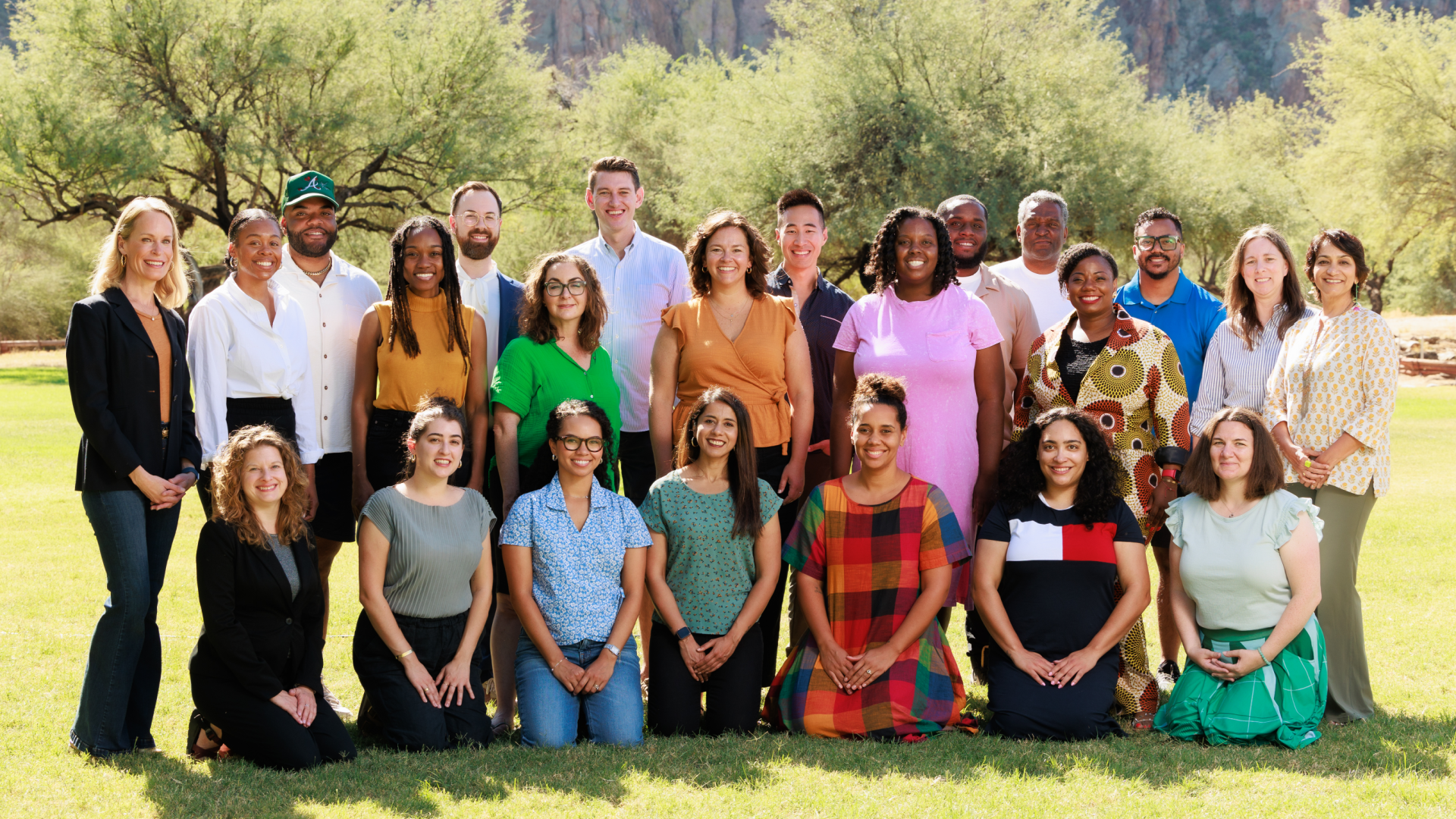For Prosperity Now – as well as nonprofits and communities nationwide – the Earned Income Tax Credit serves as a lifeline for tens of millions of working families seeking greater financial stability and a pathway to leaving poverty.

Graham O’Neill
As April 18 – the filing deadline for Tax Day 2023 – approaches, this federal policy for low- and moderate-income earners is again gaining greater attention, as structural inequities and poverty continue to affect communities – particularly for people of color and rural residents. This year, nonprofit, policy, and community leaders are making another concerted effort to remind people who qualify to submit tax returns and apply – not everyone who qualifies is aware of the tax credit.
The EITC, as it’s known, can lead to a person – and that individual’s family – receiving a larger tax refund or a lower tax bill, says Graham O’Neill, tax policy strategist for Prosperity Now. In 2022, he adds, the average EITC refund for a recipient was about $2,043.
“The Earned Income Tax Credit is one of the nation’s largest anti-poverty programs and a powerful tool for reducing poverty and promoting financial stability for low-income working families, particularly households of color where the EITC is not just a savings boost but is often relied upon to make ends meet,” O’Neill says.
“Unfortunately, every year, 20% of the eligible people don’t file for the EITC they are owed, leaving this money on the table instead of where it’s needed most.”
O’Neill points to 2022 data that shows 31 million workers benefitted from the EITC, receiving in total about $64 billion. The average individual refund amount – about $2,043 – can equal weeks of a person’s salary depending on yearly earnings. That money helps families pay for food, housing, transportation, and medical bills, important as the U.S. continues to experience higher-than-average living costs.
In 2021, the U.S. was home to 37.9 million people – or 11.6% of the population – who were living, by official standards, in poverty, according to the Census Bureau. While federal officials reported rate drops in poverty that year for youth and the elderly, the level for people ages 18 to 64 stayed the same. Poverty disparities by race also persist when matched against a group’s overall portion of the U.S. population.
Prosperity Now, an Independent Sector member, is a Washington, D.C.-based nonprofit that works to build an economy that is just, fair, and free from structural racism. It focuses on people, families, and communities so they can build sustainable wealth and prosperity. It supports systems-oriented solutions that address the root causes of inequity and racial economic injustice.
The EITC started in 1975 to only help extremely low-income earners, O’Neill says. Since then, he adds, it’s been so successful that it has expanded, and 31 states, plus Washington, D.C. and Puerto Rico, have enacted their own version of a state earned income credit.
The Internal Revenue Service offers full official details about the EITC, including a directory for free tax filing assistance programs for those who qualify and based on ZIP codes. United Way Worldwide, another Independent Sector member, also helps people with tax filing.
O’Neill, who has worked on taxpayer assistance projects for the Philadelphia city government, offers this general qualification information about the EITC:
- An individual had a job – or earned income – during a year.
- The yearly income for an individual with no children was about $16,500.
- For an individual with children, the yearly earnings were less than $60,000.
- An individual with a yearly income can claim the EITC, regardless of being single, married, and can be eligible even if the person does not have any children.
- An individual who applies for the EITC only needs a Social Security Number. U.S. citizenship is not required.
As part of its outreach efforts, Prosperity Now joined other nonprofits and community advocates on January 27 to participate in the nationwide EITC Awareness Day. That effort included driving social media awareness on the day itself as well as distributing a resource toolkit for community members, practitioners, and policymakers to easily spread the word about the EITC.
Promoting the EITC is just one part of the work supported by Prosperity Now’s Taxpayer Opportunity Network (TON), a 12,000-member coalition dedicated to creating a tax system that is just, equitable, accessible and free from structural racism.
O’Neill describes TON as a community designed to connect free tax preparation programs, advocates, coalitions and other stakeholders to resources, information, peers and training they need to effectively support vulnerable populations, whether that be through providing high-quality free tax preparation or advocating for policies that make critical tax credits like the EITC more accessible for those who need it most.
Despite what the EITC has achieved in nearly half a century, O’Neill says there is more policy and community work to be done to achieve a more equitable federal tax system for more people in the nation. That, he says, includes making expansions to the EITC and Child Tax Credit permanent so they can help more people and greater funding for the Internal Revenue Service to support this anti-poverty work.
“Prosperity Now believes our country needs a tax code that is more just, fair, and equitable and redistributes wealth to low- to moderate-income and Black and Indigenous People of Color (BIPOC) households,” he says. “Proper funding will move us closer to a tax system that works for everyone.”
Bradley Wong is director of strategic communications and public relations at Independent Sector. Learn about other Independent Sector members and becoming a member.



